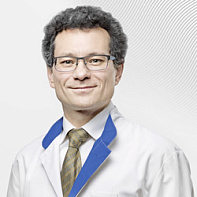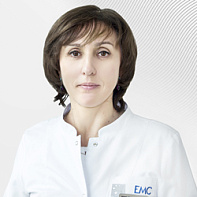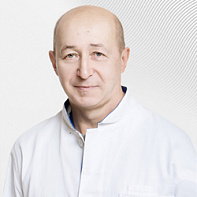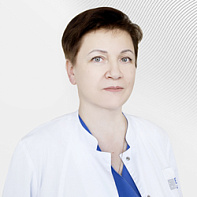Gastroscopy under anesthesia
- The reception is conducted by doctors with many years of experience who have completed internships abroad.
- The latest generation of equipment with a resolution allowing to see formations up to 1 mm in size is used for diagnostics.
- A team of gastroenterologists (or internists), endoscopists, and anesthesiologists works with each patient.
- All types of research are carried out in our own laboratory.
- Complete confidentiality of treatment and security of storage of personal data of patients are guaranteed.
Indications and limitations of the procedure
Gastroscopy under anesthesia is recommended for:
- Severe gag reflex.
- Impaired swallowing function.
- Some disorders of the neuropsychiatric profile, when it is difficult for the patient to control motor activity and remain calm.
- Inflammation of the esophagus, diverticulosis.
- Strong fear of the procedure.
Contraindications to gastroscopy/fibrogastroduodenoscopy (FGDS) under anesthesia are
- Allergic reactions to sedation drugs.
- The need to study the work of the cardiac sphincter of the stomach.
- Recent stroke, heart attack, hypertensive crisis.
- Heart failure.
Possibilities of gastroscopy under anesthesia
The working part of the endoscope consists of a flexible tube, at the distal end of which there is a video camera, illumination, irrigation and instrumental channels. During esophagogastroduodenoscopy (EGDS), the camera transmits a high-resolution image to the monitor. If necessary, the projection can be increased so that the doctor can conduct a more thorough examination of the condition of the mucous membranes of the stomach and intestines. Polyps, tumors, ulceration, inflamed areas, and sources of bleeding are visualized on the screen.
Instruments are supplied through a special channel. With their help, they carry out:
- A biopsy for further examination in the laboratory and diagnosis.
- Removal of polyps, if their size allows the operation to be performed immediately.
- Stopping bleeding by administering medications, clipping, and electrocoagulation.
- Dilation of the strictured (narrowed) areas of the esophagus.
- Removal of foreign bodies from the gastrointestinal tract.
- Detailed examination of small tissue lesions using chromoscopy.
- Rapid testing for Helicobacter Pylori, determination of gastric juice acidity.
- Diagnosis of the submucosal layer with narrow-spectrum mapping to assess the condition of blood vessels, detect the smallest changes in the initial stages.
Performing a gastroscopy using anesthesia allows the doctor to collect more information and perform manipulations in the stomach cavity. At the same time, the patient does not experience discomfort and psychological stress.
Preparation for the procedure
Before gastroscopy under anesthesia, a consultation with a gastroenterologist and an anesthesiologist is conducted. If necessary, an ECG and laboratory blood tests are prescribed. Based on the information received, a procedure plan is drawn up. The patient is given recommendations on preparation:- 3-4 days before the procedure, it is advisable to refrain from spicy, acidic, irritating gastric mucosa foods.
- The day before, exclude alcohol, coffee, and energy drinks.
- The last meal is 8-10 hours before the examination.
- Patients receiving therapy for chronic diseases should coordinate medication with their doctor.
- In the morning before the gastroscopy, you should refrain from smoking.
The accuracy of the results and the safety of the procedure depend on proper preparation. Before going into a drug-induced sleep, the doctor evaluates the patient's condition.
Documents to download:
![]() Preparation for endoscopic examination;
Preparation for endoscopic examination; Preparation for endoscopic examination for children.
Conducting a survey
Gastroscopy is performed in the morning. It is advisable to come to the clinic with an escort, as lethargy and slight dizziness may occur after the procedure.
The drug for anesthesia is administered intravenously, after the onset of its action, the patient falls asleep. During the entire examination, the anesthesiologist monitors vital signs.
If no additional procedures are required, the endoscopist performs an examination lasting about 10 minutes. Therapeutic and diagnostic endoscopy can last 30 minutes. The results are recorded in the protocol, and recording on digital media is also possible. The final amount of work is reflected in the price of services.
After completion of the gastroscopy, the patient is brought out of a state of drug-induced sleep, and his well-being is checked. A person remains in the hospital for several hours under the supervision of specialists. As soon as the indicators return to normal, the doctor gives permission to leave the clinic.
Well-being after the study
After gastroscopy under anesthesia, the following symptoms may occur:
- Weakness, slight nausea, dizziness. The condition returns to normal within 1-2 hours after sedation.
- Scratching, sore throat due to mechanical effects of the endoscope. These sensations pass during the day.
- Bloating, feeling of fullness in the stomach. The symptoms occur due to the supply of air to expand the cavities. The discomfort goes away within a few hours.
If the symptoms worsen, there is severe weakness, pallor of the skin, severe pain, vomiting or other alarming symptoms, it is necessary to seek emergency help.
Interpretation of results
According to the results of gastroscopy under anesthesia, pathologies of the esophagus, stomach, and duodenum can be diagnosed:
- Tumors, including neoplasms at an early stage.
- Erosive and ulcerative processes, their causes.
- Gastritis, enterocolitis.
- Bleeding, its intensity, localization.
Based on the data obtained, the gastroenterologist plans treatment, prescribes additional studies, if necessary, and engages doctors from other specialties.
Doctors
.jpg)


.jpg)


- More than 10 years of experience in emergency endoscopy: stopping gastrointestinal bleeding, removing foreign bodies from the gastrointestinal tract and bronchi
- Proficient in confocal laser endomicroscopy and capsule endoscopy
- He graduated from the Russian National Research Medical University named after N.I. Pirogov, completed his internship and residency in the specialty "Endoscopist"




